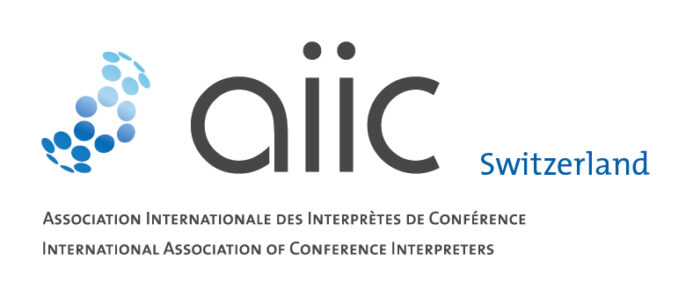Wry smile through gritted teeth
Geneva, Phil Smith, December 2020

As of January, I shall be the representative for Switzerland on the Advisory Board and thought it a good idea to introduce myself. I trained as an interpreter at the European commission in 1977 and worked on the staff until 1979, when I became a freelance. I joined AIIC in 1979 and have occupied a number of posts: regional secretary in the UK, private market sector, disciplinary committee, EU negotiating delegation, UN negotiating delegation. I taught at the University of Westminster whilst in the UK and have been involved in English update courses in recent years. I have been in Geneva for ten years.
By anyone’s reckoning 2020 has been a difficult year, even a natural optimist has been unable to see if the glass is half full because his spectacles are steamed up from his strategically placed mask.
Things fell apart this spring, none of you needs reminding of that week when every email brought yet more cancellations. Dark days indeed.
Work dried up and human contact was curtailed, and this situation must have been particularly difficult for younger colleagues who were setting out on their career – few of us forget our early days of living hand-to-mouth.
Collective thanks are due to the outgoing AB member, Rawda Cammoun-Claveria, and regional secretary, Peter Clayburn, for their nimble footwork in finding information on how interpreters might get government support and for contacting the Swiss authorities, in short: for showing leadership.
We all grasped the gravity and urgency of the situation, but differed on what the wisest approach would be, not just for the immediate future but thinking ahead to the post-Covid world. The Geneva-based organisations are now going back to work using RSI platforms; in the German-speaking part of the country there are signs of recovery. None of us know but it seems likely that RSI is here to stay, whether as a stand-alone or as part of a hybrid system only time will tell.
Switzerland effectively comprises three regions, Geneva where international organisations dominate, Basel/Zurich which rely on the private market, and Bern in the middle as the seat of government. The interests of each of you depend on your market, your location, your language combination and even your personal contacts. Past experience as an AIIC representative has taught me that it is not always easy to distil those differing interests to a common denominator.

Leaving the pandemic aside, AIIC’s challenge seems to be that of remaining relevant. We have to convince young interpreters of the value of joining, and we can best accomplish that by offering events and activities that people find both interesting and useful. About a year ago we had a very good meeting in Bern about RSI, with a follow-up in February. There have been voice coaching sessions, and the excellent events around the Nuremberg exhibition, in 2019. We need to build on what the outgoing Bureau achieved, and I think we should continue their practice of inviting non-members to events where appropriate.
AIIC relies on volunteers so I would urge you to get involved, it may sound hackneyed but what you get out of the association is commensurate with what you put in. Please come forward to help – for example we shall soon need a new webmaster – and submit ideas about activities.
The Guardian[i] carried an article several weeks ago at the start of the General Assembly in New York that spelled out the limits to working remotely at meetings that require diplomatic skills and political nous. The European Parliament has announced that in the new year it would like to bring back more working languages. These are all hopeful signs.
At a recent meeting a delegate reported that the crisis had brought people closer – people had come together as neighbours and become friends. She summed it up: be kind, be calm, be safe.
I leave you with that seasonal thought.
[i] https://www.theguardian.com/world/2020/sep/19/bye-bye-bilaterals-un-general-assembly-embrace-zoom-diplomacy
